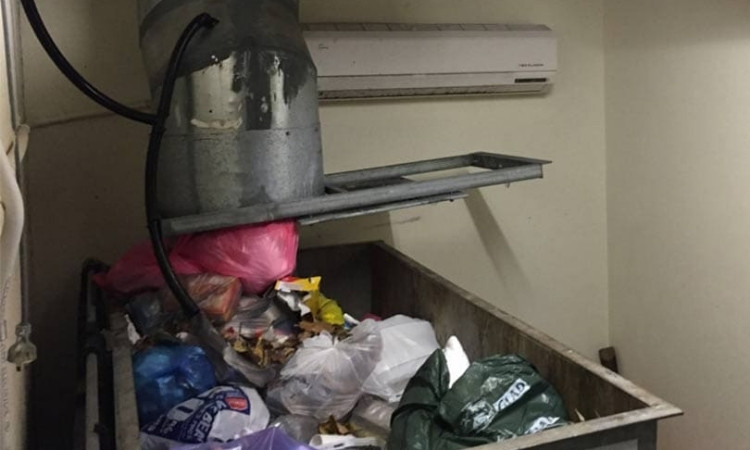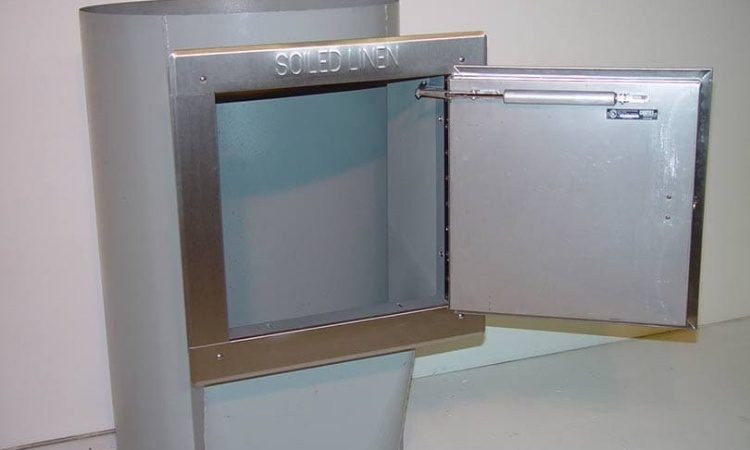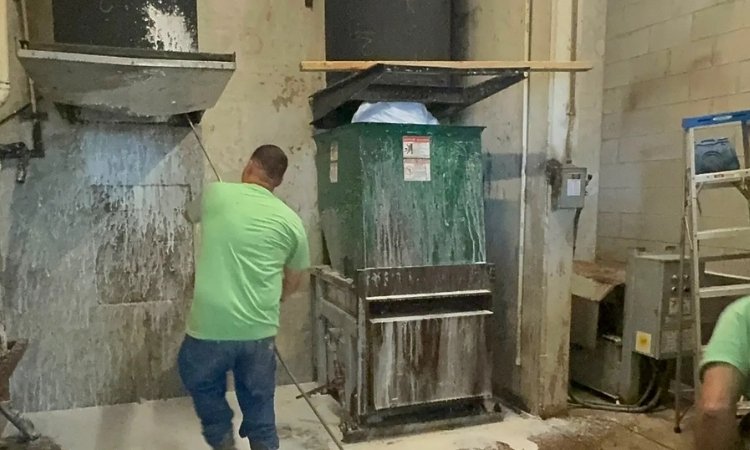Regular Chute Maintenance isn’t just a routine task; it’s a quiet protector for every building in Singapore. Most people walk past rubbish chutes without giving them a second thought. However, behind all those metal doors is a vertical system dealing with tons of waste per month. This system is potentially a very dangerous fire and health hazard when not maintained.
This is not just a matter of hygiene when it comes to maintaining rubbish chutes in cities such as Singapore. It is all about safety, fire prevention, and compliance with local laws. In this article, we’ll explore how Regular Chute Maintenance for Building Safety affects everyday living and why you should never leave it off your property maintenance checklist. Also, Affordable Rubbish Chute Singapore specializes in rubbish chute repair and replacement services in Singapore.
What Happens If You Don’t Maintain Your Rubbish Chute?
Imagine you live in a 12-storey HDB block in Jurong. Every day, you and dozens of neighbors dispose of food scraps, packaging, and household waste into the chute. Over time, if the chute isn’t cleaned, bits of waste stick to the internal walls. In Singapore’s humid weather, this waste begins to rot quickly, causing bacteria and strong odors to spread up the shaft and into hallways.
The result? A foul smell on every floor. Pests like cockroaches, ants, and rats begin to appear. Worse still, dry or greasy materials stuck in the chute can catch fire, especially if someone tosses in a lit cigarette or flammable trash.
This isn’t a rare scenario. In places like Bedok and Toa Payoh, small fires have started in rubbish chutes due to poor maintenance. These fires were preventable and could have been avoided with proper cleaning.

The Importance of Regular Chute Maintenance in Singapore
In a country like Singapore, where the climate is both hot and humid year-round, waste decomposes very quickly. Food residue left inside chutes becomes a breeding ground for germs and bacteria. If the chute is dirty for a long time, it will begin to smell and attract pests, which, in some cases, will make residents fall ill due to poor air quality.
But it’s not just about hygiene. Regular Chute Maintenance in Singapore plays a critical role in fire safety, too. The Singapore Civil Defence Force (SCDF) has clear fire safety guidelines. Clean chutes help reduce the risk of fire spreading vertically through the building.
Buildings that fail to maintain their chute systems often receive fines or warnings from regulatory authorities. It’s a risk that no MCST or Town Council should take lightly.
Why You Should Maintain a Regular Chute Cleaning Schedule
As someone who has worked closely with property managers and building owners, I’ve seen the difference chute maintenance can make. Here are some of the clear, visible benefits of Maintaining a Regular Chute:
1. No More Corridor Odors
When chutes are cleaned, food waste and liquids don’t stick to the inside walls. That means no more nasty smells leaking into common areas, staircases, or lift lobbies.
2. Fewer Pests
Cockroaches, ants, and rats love warm, dark, dirty chutes. Regular cleaning removes the food sources and nesting grounds on which these pests depend.
3. Fire Risk is Greatly Reduced
A cigarette or spark can ignite greasy waste or inflammable trash that is in a chute. With routine cleaning, the occurrence of these materials is eliminated, and the danger is much reduced.
4. Longer Equipment Life
Chute doors and internal panels covered with grime and waste corrode at an accelerated rate. Cleaning prolongs the life of the chute system and cuts down repair expenses.
5. Better Living Conditions for Everyone
Residents won’t need to file complaints. Additionally, property values can even improve when the building is well-maintained and clean-smelling.
What the Law Says About Regular Chute Maintenance for Building Safety and Fire Compliance in Singapore
In Singapore, keeping buildings clean and safe is the job of MCSTs (Management Corporation Strata Titles) and Town Councils. They are responsible for all common areas, including rubbish chutes. Their role is to make sure these areas are clean, safe, and suitable for public use.

Government bodies like the SCDF (Singapore Civil Defence Force) and BCA (Building and Construction Authority) often inspect buildings. If a rubbish chute is blocked, rusty, or dirty, the building may receive warnings or face penalties. The authorities may also ask the management to fix the problem quickly.
Professional chute cleaning companies in Singapore use strong water jets, anti-bacterial sprays, degreasers, and pest control treatments. Most buildings follow a cleaning schedule every 3 to 6 months. However, buildings with many residents or past pest or fire issues may need more frequent cleaning.
Final Thoughts: Clean Chutes Save More Than Just Time
Ignoring chute maintenance is like ignoring a ticking time bomb behind your walls. Regular Chute Maintenance in Singapore is essential. It prevents fires, keeps pests away, improves hygiene, and ensures you meet fire safety codes.
In a city where shared spaces are part of daily life, keeping rubbish chutes clean and safe protects everyone, from residents and visitors to management teams. If your building doesn’t have a proper chute cleaning schedule yet, now is the time to act. Don’t wait for a complaint, a fine, or an emergency. Make Regular Chute Maintenance part of your building’s safety culture today.

